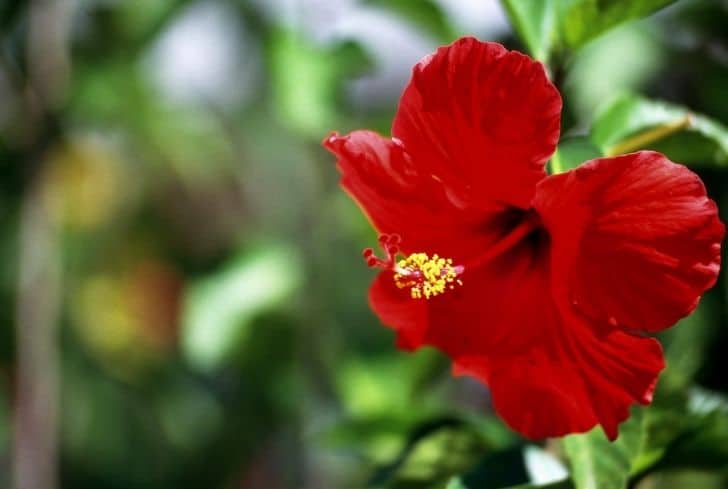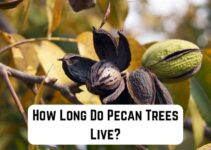Hibiscus is a spectacular perennial that is known for blooming throughout the seasons. Owing to their easy maintenance and stunning blooms, this plant happens to be a top favorite for many. Typically, all you need to do is just plant the hibiscus, and once done correctly, you can start enjoying the stunning blooms for several seasons down the line. The plant thrives best in hardiness zones ranging from four to ten.
With that said, if you have a bunch of hibiscus plants at home, you have probably wondered whether deer would feat on them. Sadly, the answer to this question is yes. Most deer come attracted by the plant’s beautiful, large leaves. Thanks to these leaves alone, hibiscus stands out as a deer-favorite plant.
If you keep your hibiscus plant unguarded in the garden, they are most likely to be visited by deer, especially when alternate sources of food are not available aplenty. The solution? Stay vigilant and install the right equipment to deer-proof your garden.
In this article, we discuss this in more detail. So, if you want to know more about hibiscus and their relationship with deer, here’s all you need to learn.
Do Deer Eat Hibiscus Plants?
Of course, they do. Hibiscus is a top favorite among deer for its beautiful and dense foliage. Since the flowers don’t come with a strong scent either, they also like to munch on the flowers. With that said, some variants of these plants aren’t as preferred as these pesky.
Some varieties of hibiscus may be more resistant to deer than others. Color Choice Plants recommends varieties such as Helene, Diana, Freedom, Red Heart, Pink Giant, and Blushing Bride for areas that have a lot of deer activity. For best results, they should not be planted near hostas, daylilies, or geraniums, as these species are attractive to deer.
Do Deer Eat Hibiscus Flowers?
Yes! The beautiful showy flowers of your hibiscus plant are under the threat of deer. While most deer primarily prefer the foliage and the twigs of the plant, if they are hungry enough, they will also end up munching on the flowers.
The best solution here would be to deer-proof your garden by following the guidelines as discussed subsequently in this article.
Do Deer Eat Hibiscus Leaves?
The lush and beautiful foliage of hibiscus is probably the primary point of attraction for most deer. In most cases, they will venture into your property, and eat the twigs and the leaves. To avoid such issues, build fences or use a mesh net on your hibiscus shrub/tree.
Do Deer Eat Hibiscus Bushes?
Yes! Unfortunately, deer will feast on your hibiscus bushes depending on their species. Typically, there are two species, perennial and annual. If you have a hibiscus bush, it is most likely to be a perennial variant.
As you probably know, these variants thrive during the summer months and tend to die during fall. Growing in hardiness zones four to nine, these plants feature stunning foliage that serves as a perfect contrast to its bright and beautiful flowers.
Most deer come attracted to the beautiful foliage of your plants and end up feasting on them. In some rare cases, they may only browse the plant without doing much damage. However, since that is only likely to happen if the deer is not as hungry, it is best to install the right protective equipment in your garden.
Do Deer Eat Hibiscus Trees?
Several variants of hibiscus are known to grow in the cooler parts with temperate climates. These are mostly large hibiscus trees growing in hardiness zones 10 and 11. With bright white and pinkish flowers, these plants are a treat, to say the least!
Although deer is likely to browse your hibiscus plant, if it is a tree and happens to be tall enough 10-12 ft, they may not be able to damage it as much. However, this certainly doesn’t indicate that deer wouldn’t try to have their share of your hibiscus tree.
How to Keep Deer From Eating Hibiscus?
While keeping deer out of your home garden might seem difficult, it is certainly not impossible. In this section, we will discuss a couple of steps that will help you keep your garden safe from deer.
1. Get Rid Of Those Bird Feeders
This is one of the first and most pertinent steps to deer-proof your garden. The process too is just as simple as it sounds. Just get rid of the bird feeders from your garden right before going to bed. In case the deer chooses to venture in the wee hours or the early hours, they will not find the feeder and therefore stop visiting your property.
Most deer are attracted to convenient and easy sources of food. So, when you keep your bird feeder out all night, that naturally serves as a convenient source to the deer and they are then encouraged to venture back to consume the fodder from time to time. As part of the process, they discover your hibiscus shrubs and end up feasting on them.
So, by removing the bird feeder you are also removing the possibility of deer venturing right inside your property.
2. Rotten Egg Mix
If you don’t already know, here’s the deal: deer absolutely hate strong fragrances. So, if you manage to insert some fragrance-inducing objects, most deer will be naturally repelled from eating your prized flowers.
The process is simple and hassle-free. All you need to do is add 12 rotten eggs in at least five gallons of water. This will end up creating a strong liquid with a pungent odor which in turn will deter deer from returning to your garden.
You can strain the liquid mix through a clean cotton cloth and then store it in large gallons or jugs. Once ready, the mix can be sprayed right on your hibiscus twice to thrice a year. Fortunately, it won’t affect your plant in any way.
3. Soap Mix
This is yet another effective way to ward off deer from your property. Just get a piece of quality bat soap and make sure it comes with an intense scent. For best results, we recommend using products that come with sodium tallowate (commonly known as tallow).
Avoid products that contain ingredients like bleach, chlorine/chlorine-like substances, chemicals, and acids as they might end up damaging your garden soil. After zeroing in on the right soap, shave it and sprinkle the shaves right around the seeds.
In case your plant is bigger, cut around one-inch blocks and bury it near the plant. The soap will do its job by emanating a strong fragrance which in turn will deter the deer and keep them at bay.
4. Use Natural Repellants
If you’re not comfortable using soap, try using natural or mildly concentrated products like hair, pepper, naphthalene balls, or organic deer repellants. For best results try to change your supplement once a week so that the deer don’t get used to it.
We also recommend reapplying the repellants right after a heavy shower, a strong gust of wind, or a range of additional weather conditions.
5. Scare Them
If none of these remedies work, you can always try scaring the deer. This is quite simple. Just plant two posts of three to four inches on the ground. Make sure the posts are planted on either side.
Next, get a couple of flat aluminum pans and make a small hole inside them. Follow this by getting a sturdy yarn (12-14 inches long) and pierce it through the pans. Finally, hammer one large nail on either of the posts and tie the yarn around them.
The pans will now reflect sun and moonlight, effectively scaring off the deer.
6. Build Your Fence
This is one of the oldest tricks in the book, and probably also one of the most reliable ones. Just build a sturdy fence around your garden or your beautiful hibiscus. You can also get wired electric fences of 20 and 30 inches for an effective and full-proof solution against deer.
If you are not keen on building a fence, try covering your plants with a quality mesh net. Thanks to the net, deer won’t manage to reach the flowers, nor would they manage to pull out the plant right up from the ground.
Well, now that we are at the end of this article, you probably know how to ward off deer from your property. Since you also know what part of hibiscus is mostly preferred by deer, you can take the necessary steps to keep the pests at bay.
Remember, the extent of deer damage on your property and the fact that whether they will grow back in the first place entirely depends on the degree of damage and the time when the damage happened. Like several other shrubs, if the root of the plant continues to be healthy, they might grow back with new shoots and foliage.
So, if your hibiscus shrub has been the victim of deer-induced damage, it is best to wait a while and examine the plant further. In the majority of the cases, the plant will regrow with new blooms. Also, since you are already taking the required steps to protect your garden, such attacks are likely to be rare.






